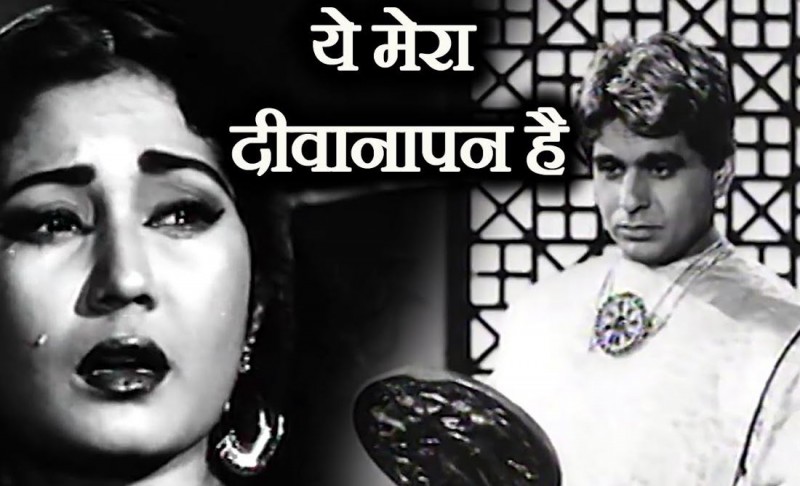
The remarkable ability of music to cross national and cultural boundaries is why it is frequently referred to as the universal language. It has the ability to stir up feelings, tell stories, and bring people from various backgrounds together. The timeless Hindi song "Yeh Mera Deewanapan Hain" becoming a global phenomenon is one example of this cross-cultural musical phenomenon. This transformation took place in Susheela Raman's album "Love Trap," where she gave the classic new life while bridging the gap between the Indian and global music scenes. The history of this well-known song, its cultural significance, and Susheela Raman's mesmerising performance will all be covered in this article.
Classic Hindi song "Yeh Mera Deewanapan Hain" was first featured in the 1950 movie "Yahudi." The song was performed by the legendary playback singer Mukesh and was written by Shailendra and the legendary composition team Shankar-Jaikishan. It has long been a favourite among music lovers thanks to its gloomy melody and moving lyrics.
The lyrics of the song express the depths of love and longing, and Mukesh's soulful performance adds additional layers of feeling. It captures the essence of a passionate but unfulfilled love, a theme that is universally felt across all cultural boundaries. Even decades after its release, its enduring appeal is a result of the eerie melody and moving lyrics.
Susheela Raman, a British-Indian singer renowned for her singular fusion of various musical traditions, has made significant contributions to the world music scene. Raman, who was born in London to South Indian parents, had a rich upbringing thanks to both cultures' thriving musical traditions. She was able to forge a unique musical identity thanks to her wide range of influences, which included Western rock and blues as well as classical Indian music.
Raman's willingness to try new things and his ability to seamlessly meld genres have defined his career. Her music reflects her deep respect for cultural diversity and her desire to bring together various traditions in a harmonious way. Because of this, she was the ideal performer to take on the challenging task of reimagining "Yeh Mera Deewanapan Hain" for her global album, "Love Trap."
Susheela Raman's second studio album, "Love Trap," which was released in 2003, stands out as evidence of her breadth of artistic expression. The various facets of love, from its ecstasy to its agony, and everything in between, are the album's main theme. It demonstrates Raman's vocal prowess and her talent for fusing various musical influences into her work.
Without a doubt, the album's rendition of "Yeh Mera Deewanapan Hain" stands out as its best song. While maintaining the emotional core of the song, Raman's rendition infuses it with a modern, international flavour. It serves as a shining illustration of how music can cut across space and time.
Susheela Raman's cover of "Yeh Mera Deewanapan Hain" is a true masterpiece of cross-cultural fusion. She manages to capture the essence of the original while infusing it with her own unique style. Here's a breakdown of what makes her rendition so special:
Vocal Brilliance: Raman's sultry and soulful voice lends a new dimension to the song. Her vocal range and control allow her to convey the song's emotional depth with precision.
Global Soundscapes: "Love Trap" features a diverse array of musical instruments and styles, seamlessly integrating elements of Indian classical, blues, rock, and electronica. This eclectic mix breathes fresh life into the song.
Multilingual Versatility: Raman effortlessly switches between Hindi and English, enhancing the song's accessibility to a wider audience. This multilingual approach highlights the universal theme of love that transcends language barriers.
Versatility in Multiple Languages: Raman effortlessly switches between Hindi and English, making the song more accessible to a larger audience. This multilingual strategy emphasises the theme of love as a universal concept that cuts across all barriers.
Fusion of Emotions: Raman's performance adds layers of sensuality and mystique while remaining true to the song's overall melancholy theme. An atmosphere of passion and longing is introduced to the listener.
The rendition of "Yeh Mera Deewanapan Hain" by Susheela Raman in the movie "Love Trap" has a significant cultural impact. It acts as a link between two musical traditions and stands for the expanding international exchange of ideas and music. Here are some significant details emphasising its cultural significance:
Raman's fusion of Indian and Western musical elements in this rendition serves as an example of how these two cultural spheres continue to interact. It displays the potential for peaceful coexistence and innovative teamwork.
Diversity is Celebrated: "Love Trap" as a whole is a celebration of the various expressions of human emotion and love. Raman celebrates the diversity of human experience by reimagining this traditional Hindi song, transcending national and cultural boundaries.
Global Audience: Raman's talent for fusing various musical genres in her work has drawn a wide range of fans from all over the world. Her performance of "Yeh Mera Deewanapan Hain" broadens the song's appeal and makes it known to a worldwide audience.
The way "Yeh Mera Deewanapan Hain" is altered in Susheela Raman's "Love Trap" demonstrates how music has the ability to cross cultural boundaries. It is a perfect example of the value of intercultural cooperation and how artists can give old works new life while retaining their emotional core. Raman's performance serves as a representation of harmony and common human experiences through the intangible language of music. It serves as a reminder of the magic that can occur when various cultures come together to create something lovely, significant, and enduring in today's globally interconnected world.
The Electric Chemistry of Ranbir and Deepika in 'Yeh Jawaani Hai Deewani'
SRK's 'Jawan' Earns Rs. 525 Crore in Hindi Box Office
Happy Birthday Shaan: A Look at Tanha Dil Singer's Top Songs